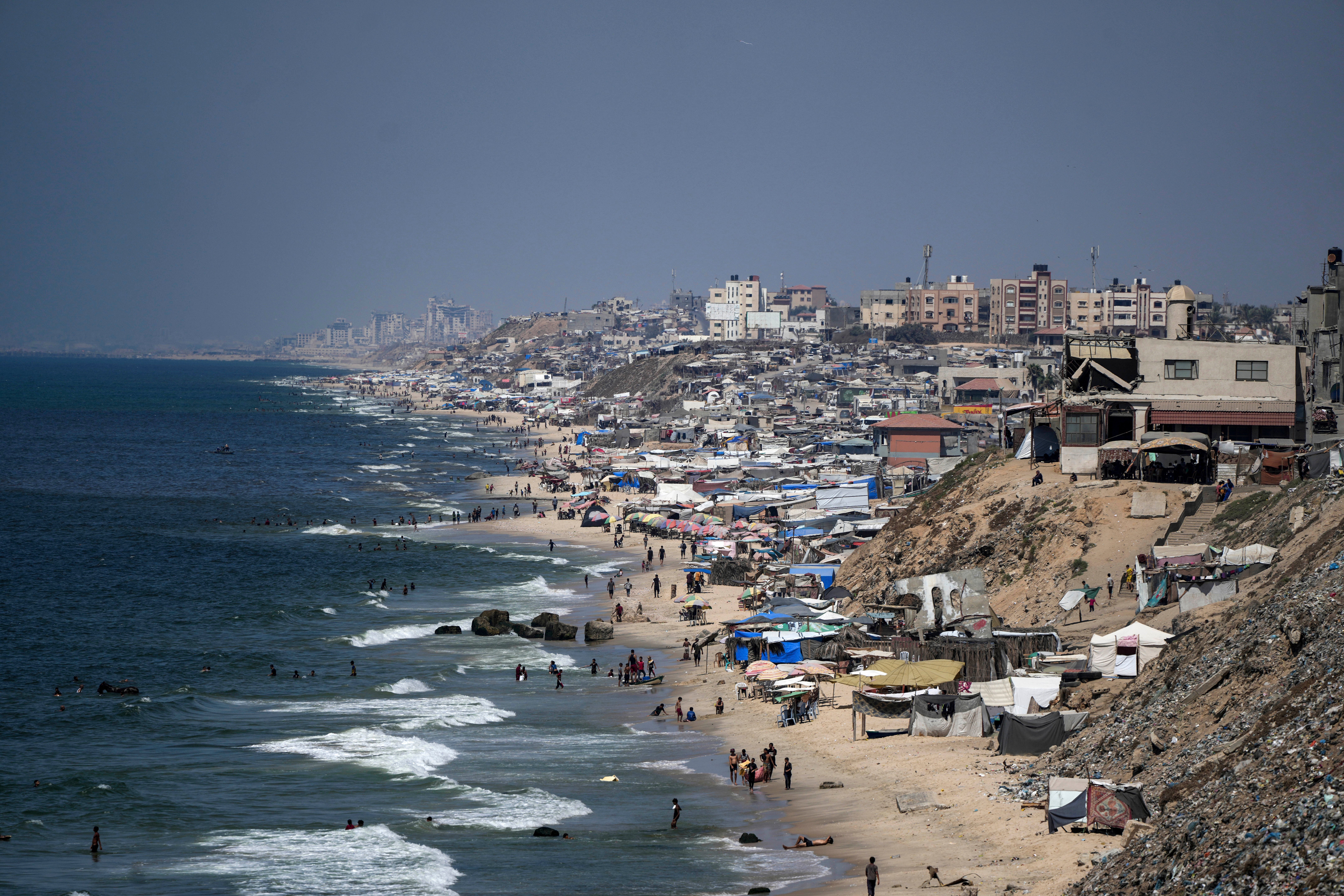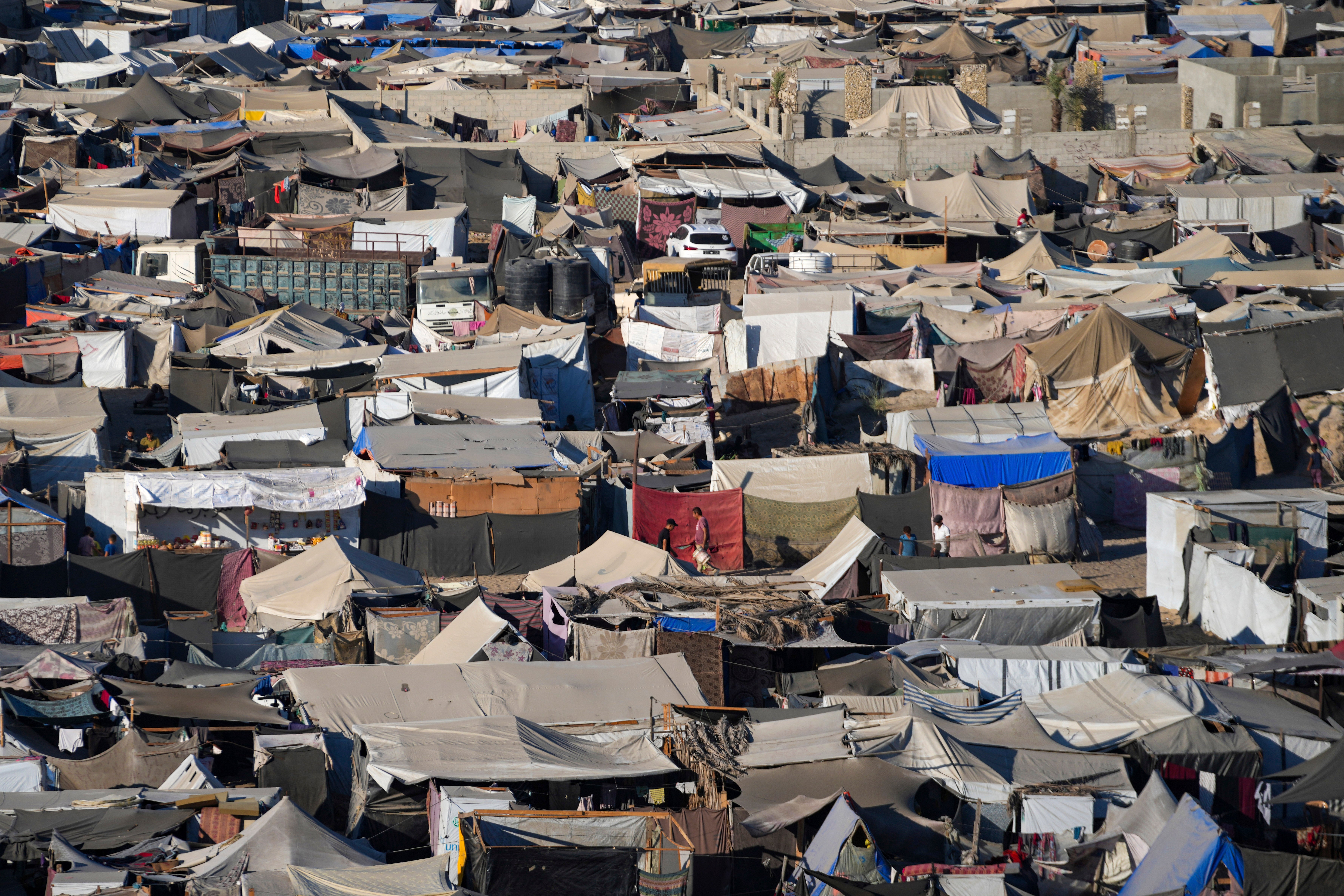Palestinian families flee tanks and drones as Israel intensifies assault in two Gaza cities
‘There is no place the tanks didn’t enter, or bomb, and there is nowhere safe anymore,’ warns resident fleeing Khan Younis
Israeli troops have pressed further into two Gaza cities, with reports of families left to sleep on roads and beaches as they fled the assault, some under heavy fire from tanks and drones.
As US president Joe Biden pressed Israeli prime minster Benjamin Netanyahu on the urgency of sealing a ceasefire deal with Hamas, Israel’s renewed attack in the cities of Khan Younis and Deir Al-Balah intensified on Thursday.
As health officials reported that Israeli strikes had killed at least 22 people, one Palestinian man forced to sleep outside without tents or blankets after fleeing incoming drones and tanks warned of growing disillusionment in Gaza over the ceasefire talks.

“These talks are time-wasting, and they aim to give Netanyahu the time he needs to continue what he is doing. There is no place the tanks didn’t enter, or bomb, and there is nowhere safe anymore,” Imad Al-Ghalayeeni, aged 48, told Reuters from Khan Younis in southern Gaza.
“Last night drones began firing towards the tents, we ducked down, for maybe hours, then the noise of tanks got louder as they advanced closer, so we decided to run,” Mr Al-Ghalayeeni added.
“We are five families, 48 persons, we ran to the beach, some slept on the road, others slept onshore, just on the sand with no tents, no blankets or mattresses and you can imagine how terrified were the children and women,” he said.
The war in Gaza began on 7 October when Hamas gunmen stormed into Israeli communities and military bases, killing around 1,200 people and abducting about 250 hostages, according to Israeli tallies. Israel’s military campaign in Gaza in response has killed more than 40,000 people since October, according to Palestinian health authorities in the Hamas-run strip.
The United Nations has warned that mass evacuation orders issued by the Israeli military this month are pushing Palestinians into overcrowded and unsafe areas along the Gaza coast, with the latest orders issued on Wednesday affecting 115 sites with more than 150,000 displaced men, women and children.
In addition to homes, warehouses and makeshift shelters, the evacuation notices have also rendered three wells serving tens of thousands of people inaccessible, said UN spokesperson Stephane Dujarric.


“In Deir al Balah, the water supply has decreased by 70 per cent, and there are also critical shortages of sanitation and hygiene materials,” Mr Dujarric told reporters.
Doctors Without Borders and the International Rescue Committee warned that shrinking living spaces and a lack of drinking water would make it “nearly impossible to prevent the spread of infectious diseases” – with the polio virus now circulating in Gaza for the first time in 25 years.
The Israeli military said its forces had intensified their operations in Deir Al-Balah, Khan Younis and central Gaza, claiming to have dismantled dozens of military structures, locating rockets, and killing 50 militants over the past 24 hours.
In the northern Gaza town of Beit Lahiya, a strike on a house killed 11 people, while another killed six, including a local journalist, in a house in Al-Maghazi camp in the central Gaza Strip, medics said. Five others were killed in separate strikes in the south.
A further three Palestinians were killed by an Israeli strike on a house in the Tulkarm refugee camp in the Israeli-occupied West Bank, the Palestinian health ministry said.
Additional reporting by Reuters
Join our commenting forum
Join thought-provoking conversations, follow other Independent readers and see their replies
Comments
Bookmark popover
Removed from bookmarks